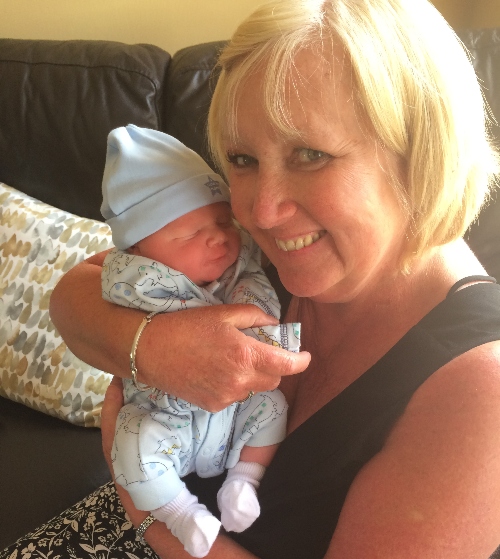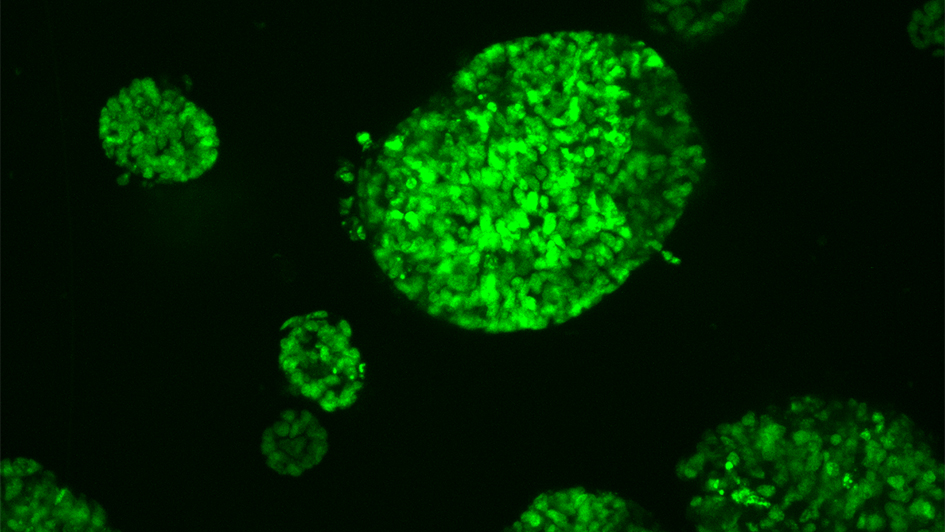Our research into bowel cancer
Our research delivers real benefits for people living with bowel cancer, also known as colorectal cancer. As well as investigating what causes the disease, we're also finding ways to predict how long it will take patients to respond to treatment.
Drug resistance, where cancer cells become resistant to drugs that previously killed them, is another important focus of our research.
Header image: short course radiotherapy after biopsy, Image credit: Dr David Mansfield
Our progress against bowel cancer
Genetics
Our researchers are uncovering what genetic factors may increase the risk of bowel cancer. One of our teams discovered a mutation that drives bowel cancer's development by causing higher levels of the gene ETV1. We hope that patients with this mutation will soon benefit from drugs targeting this gene.
We have also developed a new test that uses genetic 'barcoding'; technology to separate bowel cancer into five different diseases, which means patients can receive tailored treatment for their cancer type.
Matching treatments to patients
To give patients the best results, Professor Nicola Valeri and his team have developed a new technique to grow 'mini tumours'. Our aim is that patients will have their own mini tumours grown in the lab, so that drugs could be tested against the genetic profiles of their cancers to develop personalised treatment plans.
The team have also developed blood tests, or 'liquid biopsies', to pick out people whose tumours are unlikely to respond to certain drugs. Liquid biopsies can help predict bowel cancer's next move, and lead to more personalised, adaptive treatment plans.
Overcoming drug resistance
We are tackling the threat of drug resistance to create more effective treatment strategies. Dr Anguraj Sadanandam recently led a study which found that combining immunotherapy with radiotherapy could help treat resistant bowel tumours.
Another method our researchers experiment with is using targeted drug combinations. Recently, a team combined three different drugs which, together, were able to stop bowel cancer developing resistance to treatment.
We also found that some bowel cancers that are resistant to treatment could be re-sensitised using drugs that reduce inflammation, such as bromodomain inhibitors.

"Thanks to my treatment, I’ve been here to welcome my three grandchildren into the world. I’m not kidding myself that the cancer’s gone, but just because I’m not ‘curable’, it doesn’t mean I’m not treatable. The last few years have brought so much joy to my life, and I’m incredibly grateful for everything I’ve been here to experience. Living well with cancer is my reality".
- Karen O'Malley
Bowel cancer clinical trials
In our Clinical Trials and Statistics Unit (ICR-CTSU), we translate cutting-edge science into quality clinical trials that can transform cancer care.
Here are the latest trials that include patients with bowel cancer. If you or someone you know is a bowel cancer patient, then you may be able to support our research by taking part in a trial that’s “Open to recruitment”. Or see all clinical trials.
Support our research
As a UK charity, our life-saving research relies on the generosity of individuals and organisations. Our supporters help us make a difference to the lives of cancer patients and their families everywhere.
Bowel cancer discoveries

Overuse of CT scans could cause 100,000 extra cancers in US

-547x410.tmb-hbdesktop.jpg?Culture=en&sfvrsn=42342e99_2)